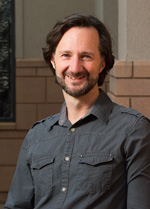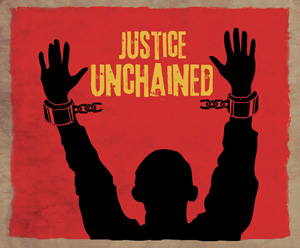
by Steve | May 20, 2013 | Magazine, Magazine Articles, May-June 2013
By Rob Renfroe
I think many of us are feeling that things are changing. Our culture, once friendly to the Christian faith, is becoming more and more hostile. And persons who hold to a traditional view of morality are often ridiculed as judgmental, mean-spirited, and on the wrong side of history.

Rob Renfroe
I’m not willing to give up on the power of the Gospel to convert people thoroughly, heart and mind, to Jesus Christ. And I’m not willing to believe that the church cannot influence our culture in powerful and dramatic ways. I believe we can. In fact, I believe in the present dark moment, we, as the people of God, can have one of our finest hours.
But I am certain that the battle to bring secular people to faith in this cynical era will not be won through politics, power or even by the most compelling intellectual answers. We’ve tried to do it that way and it didn’t work.
There are still important reasons for Christians to engage the culture philosophically and through the arts. But I’m convinced the only way we will impact our culture significantly is for people to see the truth, not just hear it. And the truth is that the way of Jesus is a better way to live.
Our current secular culture perceives Christians as judgmental, angry, self-righteous, and defined by a political agenda. Only after Christians are seen as living authentic lives of love and compassion and service – and the Church is seen as a servant community that cares more and loves more than anyone else on the planet – will we get our culture to listen to our claim that Jesus Christ is Lord and Savior, who can connect lost souls to God and bring life out of death.
And it can happen. I’m sure of it because it happened once before. In the early centuries AD of the Roman Empire, society was cynical, violence was celebrated, morals had decayed and life was cheap. Twenty centuries later, does any of that sound familiar?
The Romans were cynical about their gods. Their deities were flawed and petty, engaging in foolish and egotistical rivalries – not better than people wanted to be, but worse. And though Romans might sacrifice to their gods in hopes of blessing and prosperity, religion as a whole was losing its influence on the daily lives of the middle and upper classes.
Our culture is also cynical about religion. Fewer and fewer people in the U.S. claim a connection with organized religion. It has become more prevalent to attack and dismiss religion as a crude superstition.
Whether it’s the intellectual attacks of those known as “the new atheists,” secular attempts to remove faith from the public square, or the exposure of the church’s flaws (especially the unforgivable cover up of child abuse by church officials), you can see that persons in our time are as cynical regarding religion as the Romans were in the first centuries after Christ.
During that same period, Romans reveled in the violence of “the games.” They rejoiced to see men fight to the death, whether at the hands of other gladiators or being mauled by wild beasts in arenas throughout the empire, including the Coliseum which seated 50,000.
We haven’t gone quite that far, but there are similarities. Boxing has given way to UFC cage matches. G.I. Joes for boys have given way to explicit video games that simulate murder and even rape.
Morally, first century Rome was a time of sexual promiscuity and decadence. Affairs were common, marriages didn’t last, and it was permissible for men to keep young male and female slaves for their sexual pleasure.
Our time is characterized by human trafficking, the omnipresence of pornography, strip clubs, children sending naked pictures of themselves and others via telephone (sexting), casual hook ups and friends with benefits, so that sex is devalued to nothing more than the gratification of physical desires.
Human life in both cultures is deemed expendable if inconvenient or unwanted. Roman children born deformed or weak or even female could be discarded, left exposed to the elements to die of starvation or mauled and eaten by wild beasts.
Today, we create “clinics” where the unwanted life, often because of defect or gender, is dismembered and discarded. Over the last 40 years we have seen over 50 million abortions. Of those, less than five percent were conducted because the life of the mother was at stake or because of rape or incest.
Two cultures, 2000 years apart, but not that dissimilar. And yet, three centuries after it began as a lower-class Jewish sect in faraway Palestine, the Roman Emperor Constantine announced his conversion. And before the year 400, Christianity had become the official religion of the Empire, embraced, some estimates state, by nearly half of its inhabitants.
How had a despised and persecuted sect with no political power, that worshipped a man executed as an insurrectionist, and that appealed at first primarily to the poor and the uneducated, change the hearts and minds and eventually the culture of people who were cynical, licentious, crass, and crude? Simply put, the early Christians lived the way Jesus lived. They loved the way Jesus loved. They served the way Jesus served. And when persecuted, they died the way Jesus died, praying for the forgiveness and the salvation of those who had ordered their deaths.
Over time, the Romans came to see that the Christian way of life was simply – better. And they came to believe that the Christian faith could make them better. And they came to believe that the most outlandish thing was true – God was in Christ, reconciling the world to himself, offering life to all who would repent and believe.
How did the early Christians love and serve and live better? There were unwanted babies left to die because they were deformed or because they were female (there were 50 percent more boys in Roman households because female infants had been discarded). Christians would go into the woods and rescue those abandoned children and raise them as their own.
In times of plague, the Romans commonly abandoned their relatives at the first sign of illness, even pushing them into the streets before they died, in hopes of escaping the disease themselves. Not so the Christians. They not only cared for their own and nursed them to health, but also took in and cared for unbelieving neighbors and strangers – many dying themselves as a result of contracting the disease.
Christians provided food and assistance to the poor regardless of their faith and to both sexes, though Roman welfare was given only to males. They were faithful to their wives and kind to their children.
Pliny the Younger, a Roman governor, gave the following account of the Christians he had interrogated sometime between 111-113 A.D.: “… They were accustomed to meet on a fixed day before dawn and sing responsively a hymn to Christ as to a god, and to bind themselves by oath, not to some crime, but not to commit fraud, theft, or adultery, no(r) falsify their trust …”
In the midst of the decadence and the cynicism and the hedonism of Rome, the Christian way, the way of compassion and purity and service, looked like life, a superior kind of life. And what was once despised became treasured. And the foolish One, crucified in weakness and shame on a cross, became adored as Lord of all, God in the flesh. And a culture was changed.
Our culture can be reached. Its promises of life and happiness in material possession and pleasures will leave people in our time as empty and as unfulfilled as did the cynicism and selfishness of the Roman Empire. But whether they know it or not, people in our crass and cynical society are looking for a better way. And when they see it in us – the way of service, sacrifice and love – they will be able to believe that the way of Jesus is the way that leads to life.
We don’t have home field advantage anymore. But we do have a real opportunity to become focused on the way of Jesus and live it out the very best we can. If we do, I believe God will be pleased and a world can be transformed.
Rob Renfroe is the president and publisher of Good News.
![The God of Free Grace]()
by Steve | May 14, 2013 | Magazine Articles, May-June 2013

By Andrew Thomspon
Is salvation available to all God’s children?
For many people, that seems like a no-brainer. Of course it is! But it’s also a question that has been long debated in the history of the church. Many people both past and present have concluded that salvation is not, in fact, available to all people. They believe God has predestined only some to eternal salvation. Those who have found favor in God’s sight are the “elect.” Others God has chosen not to save, and thereby consigned to an eternity without God in hell. Such people are known as the “reprobate.”
It seems harsh to think that God would create some people for the purpose of damning them. But there are some biblical reasons for thinking that this is exactly God’s plan. Think about the great story of Israel in the Old Testament: God’s chosen people, just a small nation out of all the peoples of the world. And of course, the Church is a continuation of the story of Israel. Those whom Jesus Christ has called to be a part of his body have been grafted into the tree of Israel–like wild olive shoots! (See Romans 11:13-24). Yes, Gentiles are now a part of God’s people. But being a part of God’s people is still a special calling.
And then there are the passages in the Apostle Paul’s Letter to the Romans which speak of God predestining those whom he foreknew for salvation (Romans 8:29-30). Doesn’t that suggest that some are chosen to be saved and others to be cast out–and isn’t this God’s decision made from all eternity? If this is true, then Jesus Christ died only for these fortunate “elect” people and not for the sins of the whole world.
In fact, it is not true. John 3:16-17 tells us, “God so love the world that he gave his only Son, that whoever believes in him should not perish but have eternal life. For God did not send his Son into the world in order to condemn the world, but rather so that the world might be saved through him.”
I count as one of my chief spiritual mentors the 18th century Anglican priest John Wesley, who once wrote a powerful sermon on “free grace,” the idea that God gives grace freely to all and enables all those who will to respond to Him in faith. Wesley looked upon the passage in Psalm 145:9 as an indication of God’s disposition toward his creation: “The Lord is good to all, and his mercies are over all his works.” In other words, the God we find in Scripture–and the God we find revealed in Jesus Christ–is a God who does not despise the creatures he has made. He created out of love, and it is through love that he desires his creation to be redeemed.
The evangelical character of God’s love is seen in many places in the Bible. We see it depicted most wonderfully in the life, death, and resurrection of Jesus Christ. “For the Son of Man came to seek out and save the lost,” Jesus tells us (Luke 19:10). And we also see God’s desire for the salvation of his creatures other places as well. When Paul is counseling Timothy to pray for non-Christians, he says, “This is good and pleases God our Savior, who wants all people to be saved and to come to a knowledge of the truth” (1 Timothy 2:3-4).
For those who wonder why history goes the way it does, or why Christ’s return does not happen immediately, Peter gives us a clue that points to the wide arms of God’s love: “The Lord is not slow to fulfill his promise as some count slowness, but is patient toward you, not wishing that any should perish, but that all should reach repentance” (2 Peter 3:9). God desires the salvation of all.
Does this mean that all people will be saved? No, there is nothing in Scripture to suggest that all people will be saved. There is actually quite a bit to suggest that this won’t happen, from the parables of Jesus in the gospels to the images of the end times in Revelation. The reason is not because God does not love all His creatures. It rather has to do with the character of God’s grace and the way grace works in salvation. Grace energizes, enables, and empowers. By grace, God beckons to us as a lover beckons his beloved. But God’s grace is not irresistible. Grace is God’s love for us, which has the power for salvation. But love does not coerce if it is true love; that holds for God as much as it holds for us.
So what about those passages in Romans that speak of predestination? One important thing to remember about Scripture is that we should never interpret any single passage in a way that makes a mockery out of the rest of Scripture’s witness about God’s identity or the nature of salvation. Obscure Scripture passages are always to be illuminated by passages that are more clear. That’s a basic rule for Scriptural interpretation, in fact. The Romans passage is about God’s omniscience–about the breadth of God’s vision. God does know who will respond to grace and embrace the gift of salvation. Therefore to say that God predestines those whom he foreknows is to say that God’s knowledge is perfect.
To believe that God creates so that he can damn is to make God into a monster. While there are many names given to God in Scripture, monster is not one of them. God is Love, as John tells us in 1 John 4:8. That is God’s character, and nothing He does will prove Him to be otherwise.
Andrew C. Thompson is Assistant Professor of Historical Theology and Wesleyan Studies at Memphis Theological Seminary. Reach him at www.andrewthompson.com. Follow him on Twitter @andrew72450.
Original art by Scott Erickson (www.scottericksonart.com)
![The God of Free Grace]()
by Steve | May 14, 2013 | Features, Magazine Articles, May-June 2013

By Bethany H. Hoang
Seeking justice doesn’t begin at the door of a brothel. Seeking justice begins with seeking the God of justice.
For followers of Jesus, the difference between a pursuit of justice that brings transformation for real people suffering real violence and a pursuit of justice that amounts to little more than good intentions is simple—perhaps even simpler than we want it to be. The difference is found at our starting point, every single day. It begins with the choices we make, large or small, all day long.
Fighting injustice—the abuse of power that oppresses the vulnerable through violence and lies—can be excruciatingly hard work. It can be exhausting.
It is relentless. But Jesus offers to make our burdens light, even the burden of fighting injustice. And so, seeking justice—bringing right order and exerting life-giving power to protect the vulnerable—does not begin at the threshold of abuse. Seeking justice begins with seeking God: our God who longs to bring justice; our God who longs to use us, every one of his children, to bring justice; our God who offers us the yoke of Jesus in exchange for things that otherwise leave us defeated.
Every day we have an opportunity to respond to the injustice we see in the world. And every day we will be tempted to figure it out on our own, whether that means charging forward with blind ambition or shrinking back in frustrated resignation.
At the end of the day, if our attempts to seek justice do not first begin with the work of prayer, we will be worn and weary. And our weariness will not be that deeply satisfying, joy-filled tiredness that comes from the worthy battles of justice, but rather a bone- and soul-crushing weariness.
But when the work of justice is pursued first, and throughout, as a work of prayer and an outpouring of our relationship with Jesus Christ, obstacles become opportunities to know the riches of God’s glory and great presence in ever-increasing measure. And the victories won through the hand of God will be breathtaking beyond what any of us could ever imagine.
If you have heard accounts of slavery, human trafficking, rape, police abuse and other forms of violent injustice in our world today and have felt compelled to act, I invite you to join others in bringing lifelong sustainability to your convictions. I invite you into a rhythm of daily spiritual disciplines that will not only enable you to be strengthened in the work of doing justice when the going gets tough, but to ground your entire justice passion not in temporary reactive bursts but rather in God the Father, Son and Holy Spirit as the very source of all that you do and give in the name of God’s own character of justice.
One of the ways that I live out my own response to God’s justice call is through my work with International Justice Mission (IJM). Compelled by the biblical command to seek justice, rescue the oppressed, defend the orphan and plead for the widow (Isaiah 1:17), IJM brings tangible relief for those who suffer from violent injustices such as slavery, forced prostitution and illegal detention. For my colleagues, being obedient to God’s clear call to justice looks like this: we partner with local authorities to bring rescue to victims of violent injustice and hold their perpetrators accountable under local laws; we equip survivors to heal through long-term aftercare and support; and we work with the local government to actually transform the elements of the public justice system that are broken (such as local law enforcement, courts or social services) so that the poor are protected in the long term, because would-be traffickers, rapists or slaveowners are afraid to harm them.
God has called his people—all of God’s people—to the work of justice. But understanding how that call plays into our daily lives isn’t always easy. Both the work of justice itself and the daily work of discerning our roles in God’s movement of justice in our world today require thoughtful rhythms that will serve to sustain us and form each of us individually and as a body into the very likeness of Christ.
Sometimes, when faced with enormous need in our world today, we ask, What can I do? And, as Christians, often what we are really thinking is, What can I do . . . besides just pray? But usually when we ask that question it is not because we’ve grown to a place of satiation in our prayer life— rather we are at a place of exasperation, thinking to ourselves, I hardly even know where to begin when praying, and I’m not sure how it can possibly be as effective as doing something other than praying.
We might know in our heads that prayer and other spiritual disciplines matter, but more than likely we pursue prayer more as a half-hearted occasional duty rather than as the God-given relationship and power undergirding and fueling all of our action. Or perhaps we view it as much more relevant to our personal spiritual growth and the issues and pain we see in the lives of those closest to us—not the pain and mind-boggling complexity of millions who suffer injustice in the world. And yet this great power and source of intimacy with God is what God intends prayer to be in our lives, in every area of mission to which God calls us.
More often than not we are so eager to jump straight into whatever we perceive to be “action” that we distract ourselves from the very practices that must form, inform and even transform our action—the very practices that must form us if our action is to be wise, effective and sustained throughout the inevitable obstacles and distractions to come. For many followers of Christ, being obedient to God’s commands to do justice is certainly a daily, on-the-ground, person-by-person work of rescuing and protecting victims and restraining the hand of oppressors. However, for every follower of Christ, being obedient to God’s commands to do justice is just as much a daily, on-the-ground, person-by-person work of prayer.
The explosive growth in passion for justice over the past ten years has been an incredible testimony to the reality of need in our world today and also the reality of God’s call on his people to act. In many ways this growth is an outworking of the movement of the Holy Spirit. But there is a danger at hand as well. With large-scale growth, a movement can lose its moorings or never fully find them in the first place.
 When we seek justice without first, and throughout, seeking the God of justice, we risk passion without roots. And passion without roots cannot be sustained. Burnout is inevitable. Beyond this risk of burnout, when a justice movement loses its roots of formation in Christ and yet continues wildfire growth for a season, justice itself can be turned into a commodity for consumption by the very people passionate to pursue it.
When we seek justice without first, and throughout, seeking the God of justice, we risk passion without roots. And passion without roots cannot be sustained. Burnout is inevitable. Beyond this risk of burnout, when a justice movement loses its roots of formation in Christ and yet continues wildfire growth for a season, justice itself can be turned into a commodity for consumption by the very people passionate to pursue it.
The commoditization of justice is a sign that we have begun to pursue justice more as a means toward our own self-actualization rather than a means toward the true end of freedom and transformation for those who desperately need rescue from violent abuse. We must learn to see and know the difference between a movement that is growing and being sustained because it is well-grounded versus a movement that is growing and being sustained because it is providing a commodity for self-actualization to the masses.
You have been called into a daily pursuit of God that permeates every aspect of your life. And as you grow to know God more with each day, I pray that God will daily lead you to better understand the specific ways you have been created and called to act in the face of injustice in our world today.
The apostle Paul makes a bold claim in Romans 5 that if we hope in the glory of God, this hope will not disappoint, simply because God himself has poured out his love into our hearts through his Holy Spirit. This same Holy Spirit intercedes for us when our words have run dry, when we feel we can no longer even pray. The Holy Spirit pouring God’s love into our hearts enables us to cast off all temptation to despair and instead to pour out our hearts before our God.
Sometimes our prayers are met with great effect. There are other times when we pray and pray, and we do not seem to see God answering. But even as we pray, because we are drawing near to the God who is good and gracious, by the mystery of the Holy Spirit interceding with groans and words we cannot even express (Romans 8:26-27), we draw strength to persevere and to acknowledge God’s ultimate reign even in uncertainty. As we pray, we find that God himself is drawing us even deeper into the riches of his call and his kingdom.
The choice to pray, to ask of God, to listen for his voice, leads us to encounter hope that trumps our temptation to despair. In prayer we are reminded that decades and even centuries of injustice sometimes take great time and persevering work to reverse. And so we wait in prayer with hope. We keep asking God. We listen with great expectation.
We bring God our hope for the little girls locked in darkness. Hope for the slave trapped by viciously brutal owners. Hope for those unjustly accused.
We pray with hope as Paul instructs, without ceasing.
When and if we begin to open ourselves to see inhumanity and injustice around the globe, “man’s inhumanity to man” can all too easily become crushing. Unbearable. Paralyzing. Even numbing. It can evoke utter despair.
And yet God asks us, as those who would take up our cross and follow Jesus to Golgotha, to allow ourselves to be drawn into the pain of suffering and violence. To let it break our hearts. Even to lead others to these places of pain.
Yes, we are called to “bear witness.” But our witness must not end with observation or with unbearable pain as the final word. We are called to live as those who, in the midst of the unbearable, in the midst of pain, do not shrink back but rather rise up.
We are called to rise up, engage injustice, take “the pain of man’s inhumanity to man” and bring it to the foot of the cross. At the cross we meet the God who drew near to us without fear. We meet the God who moved toward the oppressed. We meet the God who joyfully submitted to bearing all our sin, all our shame, all our burdens; the God who offers us his yoke, who makes our burdens light. At the cross we can proclaim with boldness the call of the psalms and the prophets, “I will remember the deeds of the Lord” (Psalm 77:11).
May we make choices every day that move us toward the God who alone can deepen the passion and conviction of his calling on our lives, the God who alone can sustain us; our God who will cleanse us from broken-hearted fear and despair; our God who, when we simply ask, will surely make us people who are marked and moved by great hope, courage and, above all, love.
May we move forward with deep roots, filled with the Holy Spirit, sustained by knowing the only hope that never disappoints—the hope of God’s glory, the hope of God’s healing, the hope of God’s kingdom, now and to come.
You are invited.
 Bethany Hoang serves as the Director of the Institute for Biblical Justice for International Justice Mission (www.ijm.org). IJM is a human rights agency that secures justice for victims of slavery, sexual exploitation and other forms of violent oppression.
This article was excerpted from her book Deepening the Soul for Justice (InterVarsity Press). Reprinted by permission of InterVarsity Press. Reprinted by permission of InterVarsity Press and International Justice Mission.
Bethany Hoang serves as the Director of the Institute for Biblical Justice for International Justice Mission (www.ijm.org). IJM is a human rights agency that secures justice for victims of slavery, sexual exploitation and other forms of violent oppression.
This article was excerpted from her book Deepening the Soul for Justice (InterVarsity Press). Reprinted by permission of InterVarsity Press. Reprinted by permission of InterVarsity Press and International Justice Mission.






